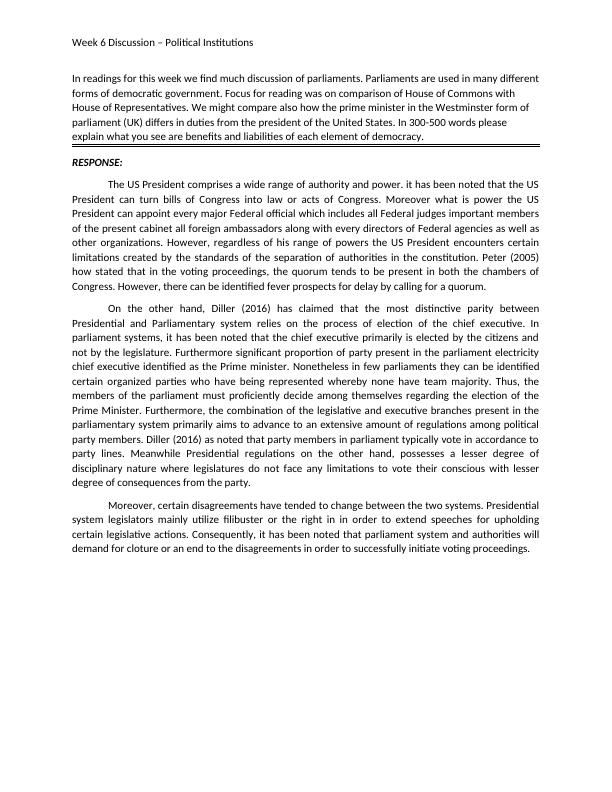Benefits and Liabilities of Presidential and Parliamentary Systems of Democracy
Added on 2023-04-22
2 Pages573 Words458 Views
End of preview
Want to access all the pages? Upload your documents or become a member.
Clarification on Separation of Powers in Parliamentary and Presidential Systems of Government
|5
|1187
|101
Assignment On Reference list | Sociology
|6
|1021
|17
Parliamentary System vs Presidential System of Government
|14
|1294
|41
Political Science | Assignment-1
|3
|853
|24
Advantages and Disadvantages of Parliamentary and Presidential Systems of Government
|9
|1300
|94
The company must have a very supportive culture
|4
|674
|11

